Mattin, Anthony Iles (eds.): Noise & Capitalism (2009) [English, Catalan]
Filed under book | Tags: · attention economy, capitalism, music, noise, sound recording
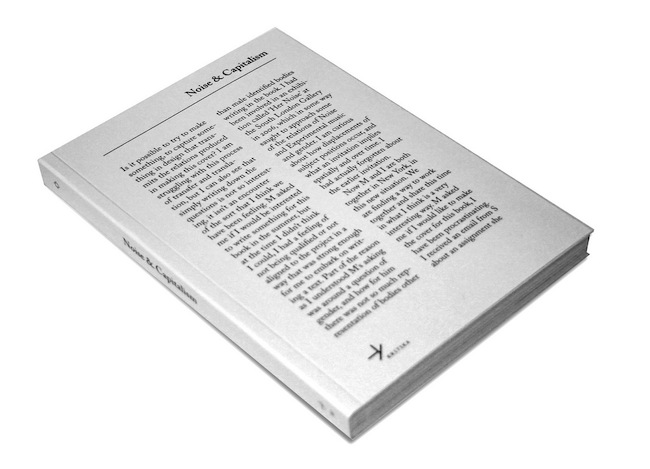
“This book is a tool for understanding the situation we are living through, the way our practices and our subjectivities are determined by capitalism. It explores contemporary alienation in order to discover whether the practices of improvisation and noise contain or can produce emancipatory moments and how these practices point towards social relations which can extend these moments.
If the conditions in which we produce our music affects our playing then let’s try to feel through them, understand them as much as possible and, then, change these conditions.
If our senses are appropriated by capitalism and put to work in an ‘attention economy’, let’s, then, reappropriate our senses, our capacity to feel, our receptive powers; let’s start the war at the membrane!
Alienated language is noise, but noise contains possibilities that may, who knows, be more affective than discursive, more enigmatic than dogmatic.
Noise and improvisation are practices of risk, a ‘going fragile’. Yet these risks imply a social responsibility that could take us beyond ‘phoney freedom’ and into unities of differing.
We find ourselves poised between vicariously florid academic criticism, overspecialised niche markets and basements full of anti-intellectual escapists. There is, afterall, ‘a Franco, Churchill, Roosevelt, inside all of us…’ yet this book is written neither by chiefs nor generals.
Here non-appointed practitioners, who are not yet disinterested, autotheorise ways of thinking through the contemporary conditions for making difficult music and opening up to the willfully perverse satisfactions of the auricular drives.
Contributors: Ray Brassier, Emma Hedditch, Matthew Hyland, Anthony Iles, Sara Kaaman, Mattin, Nina Power, Edwin Prévost, Bruce Russell, Matthieu Saladin, Howard Slater, Csaba Toth, Ben Watson.
The distribution of this book is going to be done by trading:
If you are an artist, musician, writer or engage in any creative activity, we would very much appreciate that you send a sample of your work as a form of exchange for the book. Otherwise you can write a critical response to the book and send it to Arteleku.
If you are a distributor or a label or a publisher and you want to get copies of the book for distribution, you can send single copies of different books, zines or records in exchange and Arteleku will send you copies of the book in return.
Any material sent to Arteleku will become part of Arteleku’s library and people will have free access to this material.
Post: Arteleku, Kristobaldegi 14 (o nuevo P. Ainzieta), Loiola Auzoa, 20014 Donostia – San Sebastián (Spain).
Email: arteleku at gipuzkoa dot net
Arteleku might take some time to reply and to send the books but they will do it as soon as they can.”
Publisher Arteleku Audiolab (Kritika series), and Donostia-San Sebastián (Gipuzkoa), Sep 2009
ISBN 9788479086221
191 pages
Noise & Capitalism (English, updated on 2019-9-13)
Ruido y capitalismo (Catalan, 21 MB, added on 2019-9-13)
Turbulence journal 1-5 (2007-2009)
Filed under journal | Tags: · activism, capitalism, climate crisis, neoliberalism, networks, politics
Turbulence is a journal/newspaper that we hope will become an ongoing space in which to think through, debate and articulate the political, social, economic and cultural theories of our movements, as well as the networks of diverse practices and alternatives that surround them.
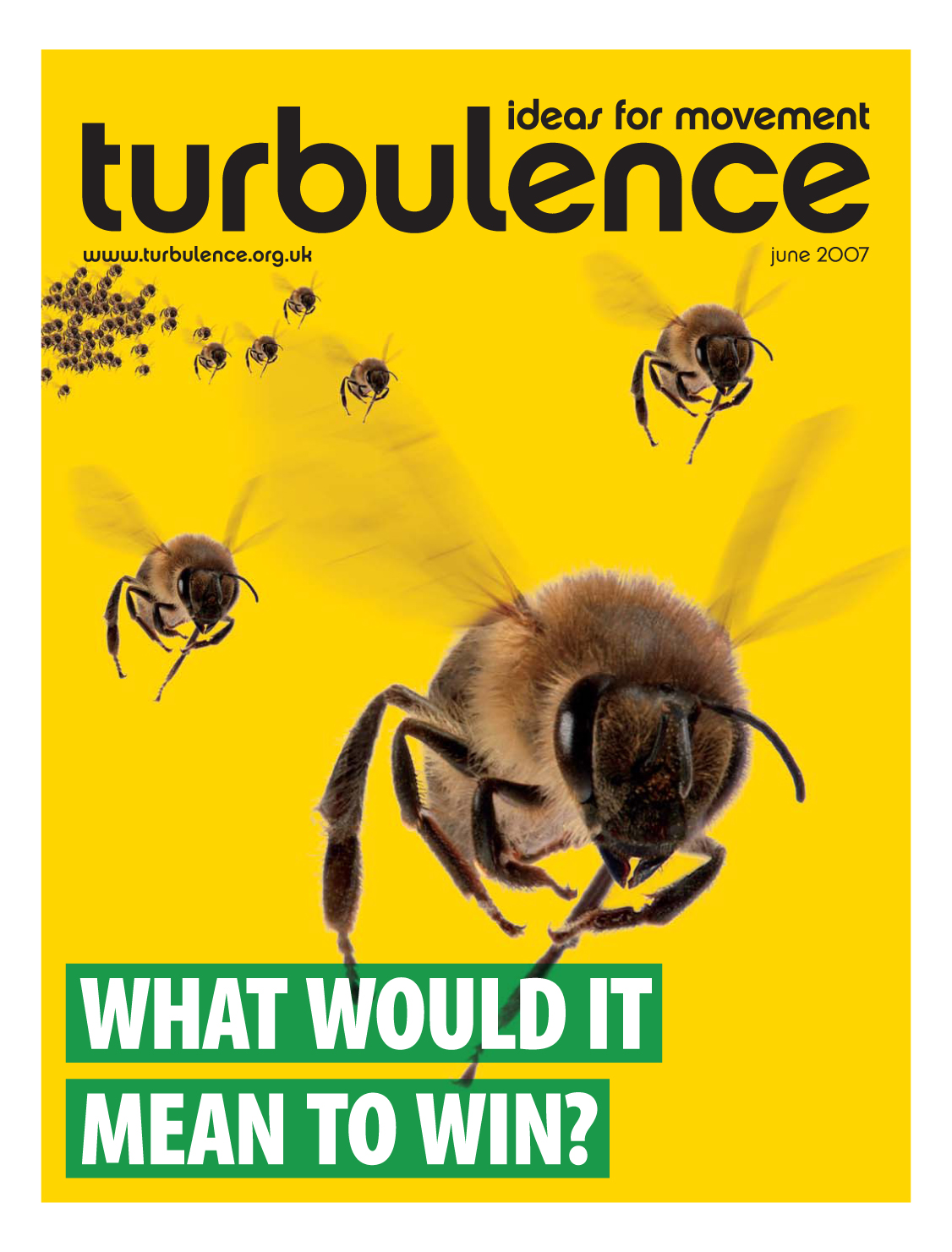
What would it mean to win?
Turbulence 1, 2007
The Turbulence collective produced 7,000 copies of a free 32-page newspaper distributed at the camps, blockades and alternative summits that made up the mobilisation against the G8 summit in Heiligendamm in June 2007. The theme of the 14 articles from individuals and groups from across the world tackled the difficult question of ‘What would it mean to win?’.
PDF (original tabloid format, 289 x 380mm)
PDF (journal format, 152 x 229mm)
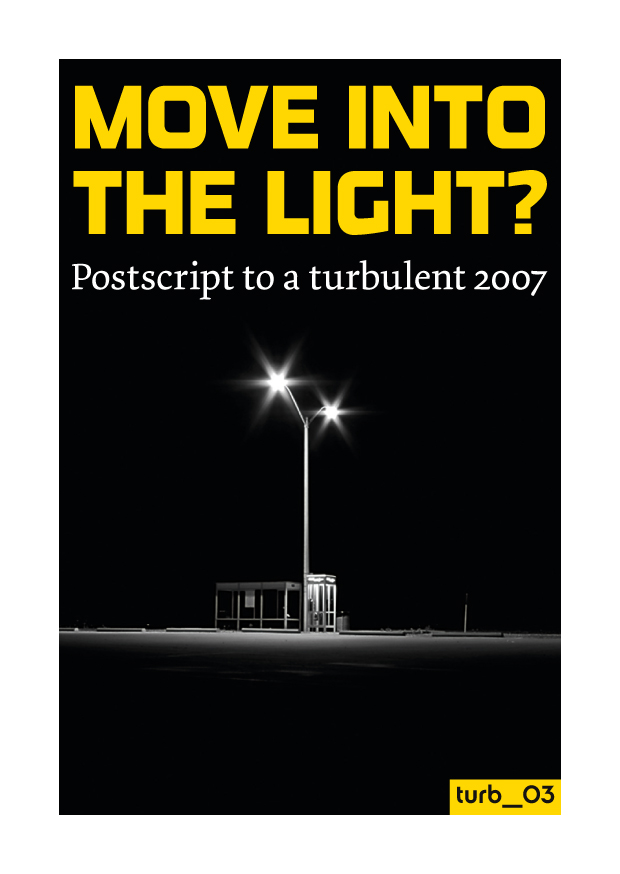
Move into the light?
Turbulence 3, December 2007
6,000 copies were printed in English, with a further 4,000 in German.
PDF (A6 booklet)
PDF (German version)
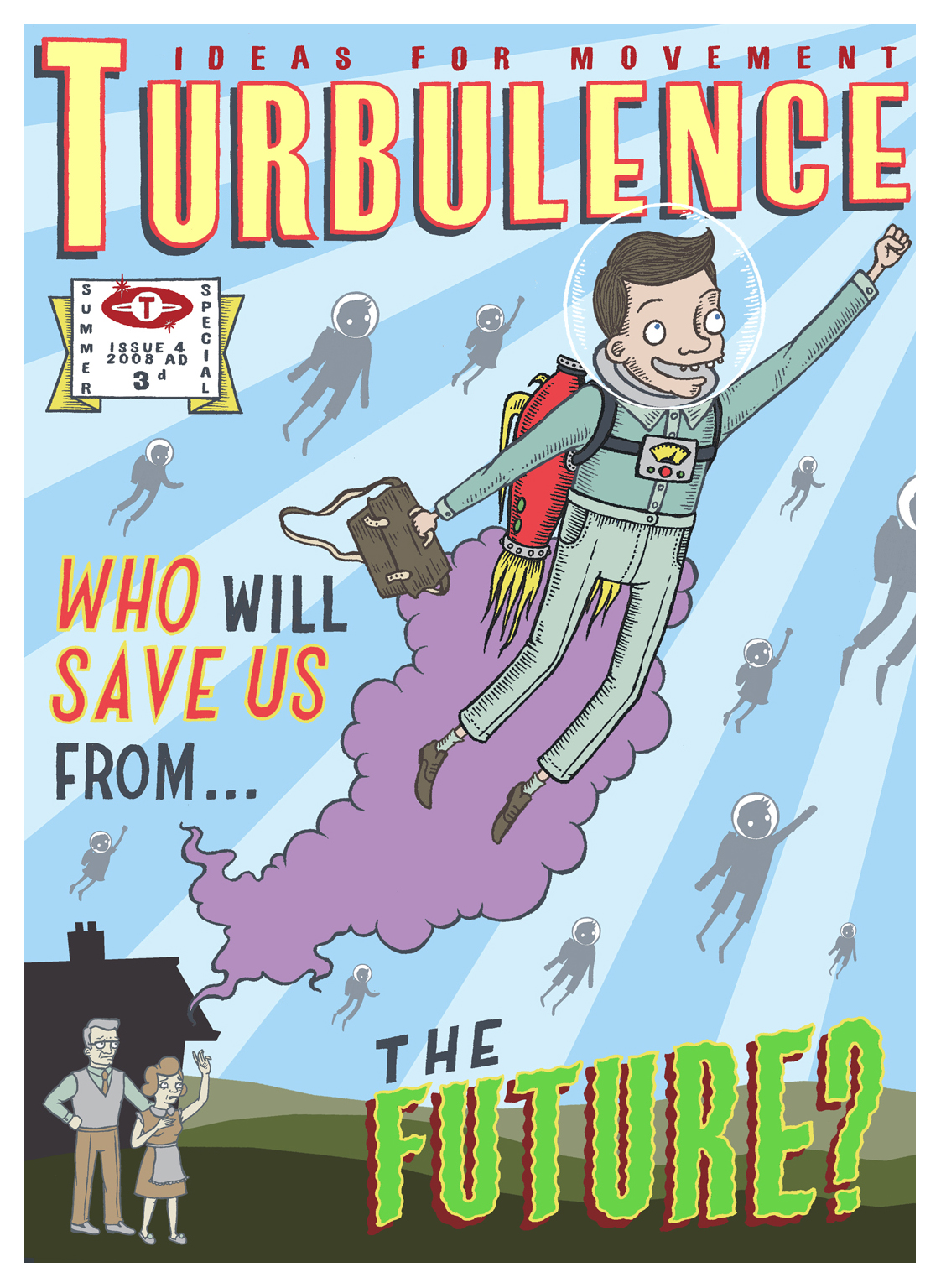
Who can save us from the future?
Turbulence 4, Summer 2008
Today, the very act of thinking about the future has become a problem. What both capitalism and ‘really existing socialism’ had in common was the belief in a future where infinite happiness would spring from the infinite expansion of production: sacrifices made in the present could always be justified in terms of a brighter future. And now? The socialist future has been dead since the fall of the Berlin wall. After that we seemed to live in a world where only the capitalist future existed (even when it was under attack). But now this future, too, is having its obituaries composed, and impending doom is the talk of the town. The ‘crisis of the future’ – that is, of our capacity to think about the future – is born out of these twin deaths: today it is easier to imagine the end of the world than the end of capitalism.
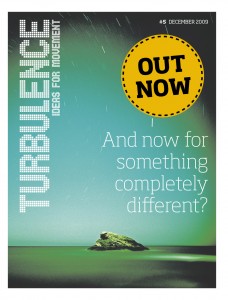
And Now for Something Completely Different?
Turbulence 5, December 2009
Until recently, anyone who suggested nationalising the banks would have been derided as a ‘quack’ and a ‘crank’, as lacking the most basic understanding of the functioning of a ‘complex, globalised world’. The grip of ‘orthodoxy’ disqualified the idea, and many more, without the need even to offer a counter-argument.
And yet, in this time of intersecting crises, when it seems like everything could, and should, have changed, it paradoxically feels as though very little has. Individuals and companies have hunkered down to try and ride out the crisis. Nationalisations and government spending have been used to prevent change, not initiate it. Anger and protest have erupted around different aspects of the crises, but no common or consistent reaction has seemed able to cohere. We appear unable to move on.
For many years, social movements could meet and recognise one another on the common ground of rejecting neoliberalism, society’s old middle ground – those discources and practices that defined the centre of the political field. The crisis of the middle has meant a crumbling of the common.
And what now? Will neoliberalism continue to stumble on without direction, zombie-like? Or, is it time for something completely different?
Comment (0)Slavoj Zizek: First As Tragedy, Then As Farce (2009)
Filed under book | Tags: · capitalism, commons, communism, globalisation, propaganda, socialism
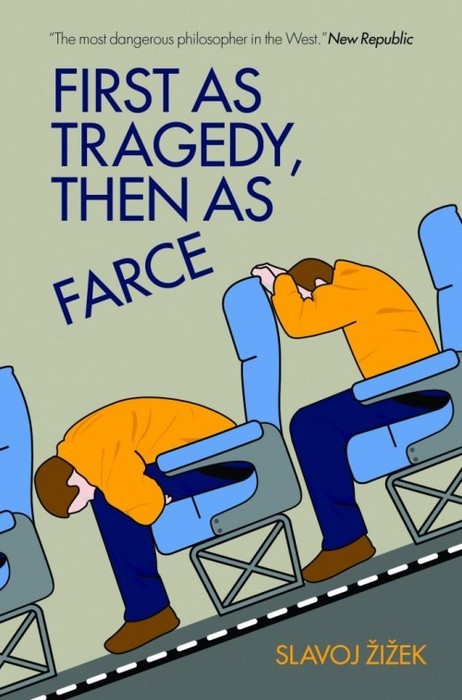
From the tragedy of 9/11 to the farce of the financial meltdown
In this bravura analysis of the current global crisis following on from his bestselling Welcome to the Desert of the Real, Slavoj Zizek argues that the liberal idea of the “end of history,” declared by Francis Fukuyama during the 1990s, has had to die twice. After the collapse of the liberal-democratic political utopia, on the morning of 9/11, came the collapse of the economic utopia of global market capitalism at the end of 2008.
Marx argued that history repeats itself “occuring first as tragedy, the second time as farce” and Zizek, following Herbert Marcuse, notes here that the repetition as farce can be even more terrifying than the original tragedy. The financial meltdown signals that the fantasy of globalization is over and as millions are put out of work it has become impossible to ignore the irrationality of global capitalism. Just a few months before the crash, the world’s priorities seemed to be global warming, AIDS, and access to medicine, food and water — tasks labelled as urgent, but with any real action repeatedly postponed.
Now, after the financial implosion, the urgent need to act seems to have become unconditional — with the result that undreamt of quantities of cash were immediately found and then poured into the financial sector without any regard for the old priorities. Do we need further proof, Zizek asks, that Capital is the Real of our lives: the Real whose demands are more absolute than even the most pressing problems of our natural and social world?
Publisher Verso, 2009
ISBN 1844674282, 9781844674282
Length 96 pages
PDF (updated on 2012-4-15)
Comment (0)
